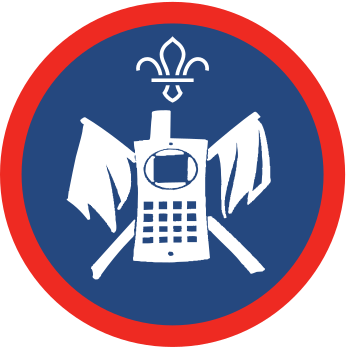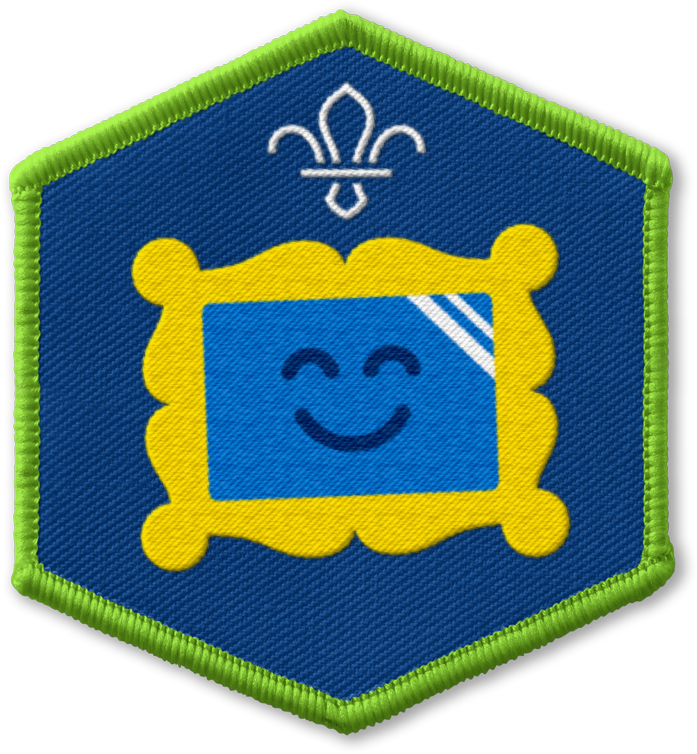What to expect
Amateur radio’s also known as HAM radio. It’s a style of radio communication used by people who are doing it for a hobby – rather than professionals.
Once you’ve given it a go, there are loads of possibilities ahead. You’ll be able to communicate with people across the world, experiment with technology, enter international competitions, and even train for emergency communication.
One of the best ways for Scouts to get a taste for amateur radio is taking part on Jamboree on the Air (JOTA). You’ll need a helping hand from someone who holds an amateur radio transmitting licence to set up a JOTA station – it could be a young person, leader, or parent. Many groups get in touch with a local licensed amateur radio station too.
Want to know more? Check out the Radio Society of Great Britain and Radio Scouting. It’s also worth getting in touch with your nearest Scout Adventures centre – they may be hosting groups for the next JOTA.
What you’ll learn
Communicating through radio is a skill you’ll have to master – you’ll need to wait for your time to speak and listen carefully in between. Once you’ve got the hang of the basics, you’ll be able to build friendships with people in neighbouring cities, countries, and continents.
Fun facts
- People have been using radio for amateur communication since radio waves were adapted into a communication system in the 1890s (by an Italian inventor, Marconi, in case you were wondering). Scouts have been involved for over one hundred years – Baden-Powell was a radio fan and encouraged Scouts to give it a go, so perhaps it isn’t surprising that some groups (looking at you, 1st Arundel and 3rd Altrincham) held transmitting licences as early as the 1920s.
- As part of one JOTA, some lucky Scouts from Norfolk made radio contact with the International Space Station! They spoke to Crew Commander Frank Culbertson, who wore his Scouts T-shirt for the occasion.
Handy hints
- Know the difference between amateur and broadcast radio. If you’re a beginner, it’s an easy mistake to make! You’re there to make one-to-one contact with other people trying amateur radio. At the same time, it’s good to remember that anyone can tune in and listen, so keep it polite and don’t share any secrets to success!
- Don’t worry if there’s jargon. Like many hobbies, there’ll be some new terms and abbreviations to get used to. Ask plenty of questions, and jot down anything you want to remember – helpful licensed operators may have a jargon-busting sheet they’re happy to share.
- Get your nickname sorted. At the start and end of the call, you should use your allocated call sign. Otherwise, radio amateurs tend to just use their first name or a nickname throughout the call.
- Make it special. If you’re organising a Scout radio event (whether it’s JOTA or a County or District event), the amateur operator or radio club can apply for a special event call sign to help the station stand out from the crowd.
- Don’t go it alone. Make sure young people aren’t using amateur radio alone – always have an adult there who can supervise the conversations.
Safety
You must always:
- Complete a risk assessment
- Have the right ratios of number of adults to provide suitable supervision
- Set up an InTouch process
- Know what to do in an emergency
- Share information with parents and carers with an activity information form
- Get approval from your commissioner
Other activities:
- Where an activity is not covered by any other rules members must follow rule 9.1 and assess the risk, ensure that members can be kept safe and that all equipment is suitable for its use.
This activity can be led by you or someone else in Scouts
You can go to a centre or use an activity leader who is not part of Scouting:
You must find a suitable provider who meets the following requirements:The provider must have public liability insurance.
Guidance
Reflection
Amateur radio is all about communication. Did anyone find it tricky to communicate with the radio? It might’ve been a little more formal than they were used to, with call signs and no interruptions! Did anyone speak to anyone whose first language wasn’t English? What could people do to prepare for international communication?
Amateur radio can also be a great reminder that people are part of a worldwide family of Scouts – and that it’s possible to build friendships across distance with the use of technology. What was it like to speak to a group of people you didn’t know? Was it easy to make conversation? Did you find out anything interesting? What are the benefits of being able to talk to people you might not otherwise meet?
- If you’re not sure how to make amateur radio accessible for everyone in your group, you could chat to an experienced radio operator or your local amateur radio station. They’ll probably have some good ideas, and may be able to direct you towards (or even lend you) specialist equipment. It’s best to give them as much notice as possible.
- For example, there are devices to help people with visual impairments including speech synthesisers to keep them advised of the radio set-up. Deaf operators could use a morse reader than monitors morse code signals and displays them as plain text (fancy!).
- You could also explore other ways of making communication easier for people too. Would they prefer to use Morse code? Maybe some people would prefer to make an audio clip in advance; others might want to make a help sheet so there’s no pressure to remember what they want to say.
All Scout activities should be inclusive and accessible.
Amateur radio doesn’t have to stop after a one-off event. Radio Scouting have some great ideas for getting amateur radio into you usual meetings, including building a radio tower as part of a pioneering project and taking part in radio orienteering.
You could also explore building single band radio receivers – listening is a great way to enter and understand the hobby. Get the District involved in your thinking and talk about sharing resources and loaning them to other groups.
You could also look into formal training and certification – operators need formal qualifications before OFCOM will issue a licence.




